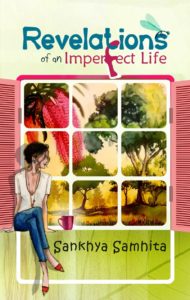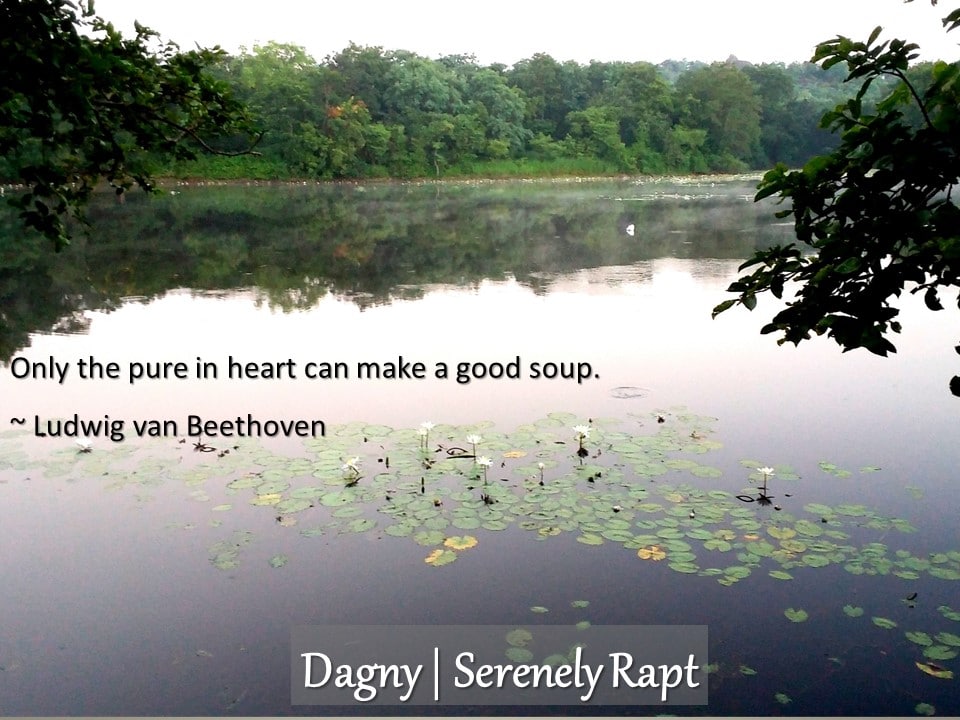
To be honest, this is not a book review.
This is the description of a soul-satisfying feast. It is hardly surprising, therefore, that the first paragraph of the book was about maasor tenga, a signature dish from verdant Asom.
It is not just a paragraph heralding a gripping story.
It has layer upon layer of thought, each imparting a distinct flavor to the mix. I just realized, as I typed the last sentence, that if I can competently describe this magnificently evocative bit of writing, my review would be done.
The first paragraph sets the pace for the whole book. It also contains all the elements that serve to delight and satisfy the soul.
Let me then, get out of the way and let the author speak to you.
The trick, to making the perfect maasor tenga, is in the salt. Too much, and you end up with a tenga that is too sour to eat. Too little, and you get a bland tenga which is no fun at all. The fish matters too, of course. It takes a lot of practice to fry the fish just so; if you want to have piping hot fried fish, you let it cook till slightly crisp, but for tenga you never let it cook too much. You allow the fish to finish cooking in the tangy gravy, so the flavor of tomatoes or the thekera or the lemon, depending on what tenga you were making, was deeply absorbed by the fish, resulting in a delectable matrimony of flavor and fish. Pair it with joha rice and declare it a feast.
~ Sankhya Samhita
When I finished reading that paragraph, I sat still for a few moments. It had invoked a dreamy pensiveness within me. My breathing slowed. I read the paragraph again. Then again. And again. I couldn’t get enough of it. It was so perfectly put together… so evocative, so powerful! I read it once more. That was the first hook.
This, a part of me whispered, is the voice so someone far from home. This is the cry of the exile. In her mind’s eye, the exile looks upon a beloved world that is far, too far. Her fear is that the world is lost forever.
What awfulness is she mired in, to speak with such deep, almost hopeless, longing? I asked myself. That was the second hook.
The observations about salt then took on a new meaning. Surely she isn’t only referring to the seasoning of a beloved dish? No fun at all, she said. Too much, too little… or just right? Was it love, or that very elusive indefinable talent- acceptance? That very rare ability, which lets you throw the doors of your heart open, and make you willing to create space for another human being in your consciousness?
Is that the salt she speaks of? That question was the third hook.
And the fish, that which must be fried just so? The fish that must allow the tangy essence of the curry to permeate it, to bring it to a full-bodied flavor. For it is in the fish that the coming together must happen. There would be no symphony if the fish remained too tough to let the matrimony of flavor happen.
Who is the fish, the protagonist? Oh my! That thought was the fourth hook.
Finally, the joha rice. That which lifts the whole thing into the category of a feast. I loved the flourish of the last sentence. Declare it a feast! Because now that all the elements have come together perfectly, what can life be but a feast; a feast that presupposes a reason to celebrate?
Wouldn’t it be wonderful if we knew how to lift our lives out of the mundane into a feast of celebration? That joy was the fifth hook.
Finally, there was the absolutely delectable flavor of a misty land far away. A land where the mighty Brahamputra brings life, contemplation and serenity as abundantly as she brings havoc. Glimpses of this land and her six sisters have always fascinated me.
With this paragraph, I was promised an introduction to the spice and flavors of Assam. That was the ultimate hook.
I was buttoned up, good and secure, to the book.
As I read on, the holds and bonds deepened within me. Everything that the first paragraph had promised, it delivered in prodigious abundance. The impeccable language, the lyrical cadence of the words, gripped me tighter than any narrative has managed to grip me in a long time.
Just as the first paragraph created the perfect launching pad for the novel, the childhood memory at the beginning of each chapter set the tone for what was to follow. The transition was seamless, the journey from the past to the present was magnificently smooth every single time. I realized only later what effort of thought and tension of purpose must have gone into creating such a smooth ride! My respect for the prowess of the pen that had only demonstrated the grace and not the effort that went into achieving that grace, multiplied.
It’s not about exact measurements or ingredients. Good food is about feeling. Cooking is an art, not a science. You got to have soul to feed people right. That’s what this is. Soul food.
~ Alex George
The truth is, there isn’t a single thing I can point to, which could be improved upon in this book. The fact simultaneously delighted and dismayed me. While the reader in me exulted, the reviewer in me was a tad peeved. If there’s nothing that can be improved, I must, in all fairness, give a 5-star rating. But that would leave no room for subsequent raising of the bar, which I am sure will happen with this author! Hmmm.
I have therefore decided to give a 4.9/5 stars to this wonderful book. This is the highest rating I have ever given to a book I have reviewed. If you love to read, you really can’t miss this book.
Sankhya Samhita, thank you for this treat. You have fed my soul with the most delectable feast I have ever eaten. But you have also whetted my appetite for more, a LOT more! Write on, therefore, I am eager to read!
And to think this is a debut novel!
Rating: 4.9/5
Links: Buy the book, read Sankhya Samhita’s Blog and connect with Sankhya

Book Review: Revelations of an Imperfect Life
